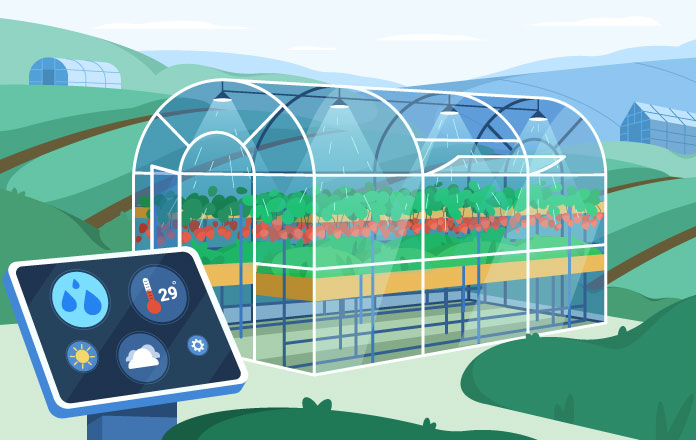In recent years, agriculture has experienced a remarkable transformation, thanks to the rapid evolution of agritech – a convergence of agriculture and technology. This dynamic synergy has reshaped traditional farming practices, introducing innovative solutions to address the challenges that the agricultural sector is facing. The journey of agritech reflects a commitment to sustainability, efficiency, and resilience in the face of a growing global population and environmental concerns.
Early Days of Agritech:
The roots of agritech can be traced back to the mechanization of agriculture with the introduction of tractors and other machinery in the 19th and 20th centuries. These advancements marked the initial steps toward increased efficiency in farming. However, the real breakthroughs started unfolding in the late 20th century with the fusion of digital technologies and data-driven solutions.
Precision Agriculture:
At the heart of agritech’s evolution lies precision agriculture, a methodology that leverages technology to optimize farming practices. Global Positioning System (GPS) technology, coupled with sensors and data analytics, allows farmers to precisely manage resources like water, fertilizers, and pesticides. This precision enhances crop yields and minimizes the environmental impact, contributing to sustainable farming practices.
Smart Farming & the Internet of Things (IoT):
The advent of the IoT has given rise to smart farming, where interconnected devices and sensors facilitate real-time monitoring and control of agricultural operations. Farmers can remotely access data on soil moisture, temperature, and crop health, enabling proactive decision-making. Smart farming enhances productivity, reduces waste, and promotes resource-efficient farming.
Biotechnology & Genetic Engineering:
Agritech has embraced biotechnology and genetic engineering to create genetically modified organisms (GMOs) possessing enhanced traits. These advancements help crops withstand pests, diseases, and adverse environmental conditions. While controversial, genetic engineering has played a crucial role in bolstering global food security by improving crop resilience and increasing yields.
Data-Driven Decision Making:
The abundance of data generated by agritech tools has paved the way for data-driven decision-making in agriculture. Farmers can analyze historical and real-time data to optimize planting schedules, predict crop yields, and respond swiftly to changing market conditions. This informed approach improves productivity, helps farmers mitigate risks, and makes more sound financial decisions.
Vertical Farming & Controlled Environment Agriculture (CEA):
Agritech has expanded beyond traditional farming practices with innovations like vertical farming and Controlled Environment Agriculture (CEA). These methods involve cultivating crops in vertically stacked layers or controlled environments such as greenhouses. By carefully regulating factors like temperature, humidity, and light, vertical farming and CEA enable year-round production, conserve resources, and offer sustainable solutions to urban agriculture challenges.
Challenges & Future Prospects:
While agritech holds immense promise, challenges persist. Issues such as the digital divide in rural areas, data privacy concerns, and ethical considerations surrounding genetic engineering need to be addressed. Looking forward, the future of agritech appears promising, with advancements in artificial intelligence, robotics, and sustainable farming practices on the horizon. The integration of cutting-edge technologies is expected to enhance efficiency, reduce environmental impact, and ensure the resilience of agriculture in the face of future challenges.
The evolution of agritech represents a pivotal moment in the history of agriculture. From mechanization to precision agriculture, smart farming, and genetic engineering, agritech has become a driving force for sustainable and efficient farming practices. As we navigate the challenges of a growing global population and environmental changes, agritech stands as a beacon of innovation, offering solutions that will shape the future of agriculture and ensure food security for generations to come.



